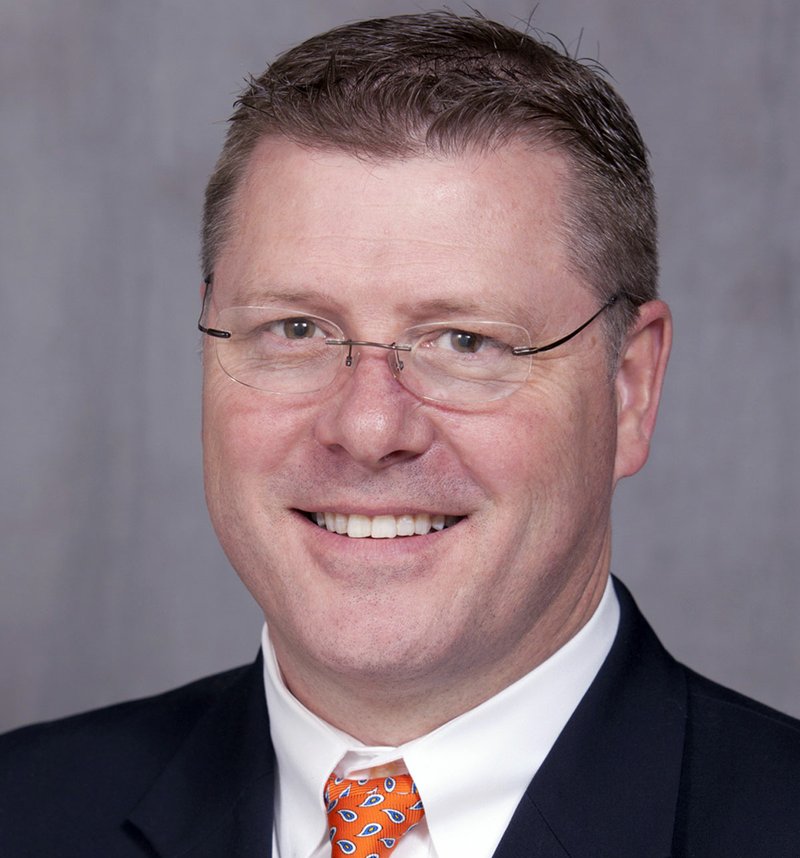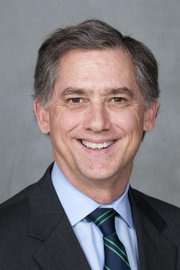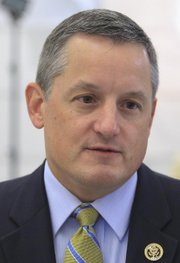WASHINGTON -- Fourth District U.S. Rep. Bruce Westerman is a charter member of a new bipartisan Capitol Hill body, the Working Forests Caucus, that unites congressmen from key lumber and wood products states.
First District U.S. Rep. Rick Crawford is on the steering committee of the recently formed Cuba Working Group, a collection of lawmakers from both parties who want to roll back Cold War restrictions on trade with Havana.
Second District U.S. Rep. French Hill is a leader of the Congressional Investment in America's Skilled Workforce Caucus, created in 2015 to promote skilled trades.
And 3rd District U.S. Rep. Steve Womack is at the helm of the Congressional Chicken Caucus, which was relaunched last year to promote poultry.
Caucuses, sometimes referred to as Congressional Member Organizations, are proliferating on Capitol Hill, and each member of the Arkansas House delegation belongs to several.
Over the past four decades, the groups have been growing like mushrooms; there was even, for a time, a Congressional Mushroom Caucus, though it eventually folded.
There are 435 members in the U.S. House of Representatives and roughly 450 caucuses for them to join, according to a list compiled by the Committee on House Administration.
The caucuses run the gamut, from biofuels to bourbon and from Macedonia to malaria.
The Senate has caucuses, too, though not as many.
"It's amazing the variety of issues that are supported by a caucus," Crawford said during a recent interview. "Some of them are pretty serious, and they have an agenda and may even go so far as to have hearings, and then others are just mostly for fun."
The Republican from Jonesboro belongs to a dozen or so caucuses that address weighty topics, including nuclear energy, Panama Canal expansion, the Mississippi River Delta, chickens, rice, steel and explosive ordnance disposal. (Crawford deactivated bombs while serving in the U.S. Army.)
But the former bronc rider is also the founding father of the rodeo caucus, one of the newer and smaller groups on Capitol Hill.
"That's just a fun thing for people from different states that support rodeos to get together for fellowship as much as anything," he said.
For most of the nation's history, there were only a handful of caucuses on Capitol Hill.
"They started growing very slowly through the 1970s and 1980s," said Jennifer Nicoll Victor, an assistant professor of political science at George Mason University in Virginia and co-author of Coordinating the Congress: Explaining Caucus Persistence in the United States House.
By the mid-1990s, there were 140 caucuses, including 28 that were receiving federal funding, according to a 1994 article in The New York Times.
"Back then, they were dominated by Democrats, and the Republicans came to see the Democratic caucus groups as very corrupt. They were seen as a way for industry and constituent groups to gain some favor from members of Congress and for members of Congress to be using House funds to be providing services back to those groups in a way that may have been inappropriate," Victor said.
When Republicans took control of both houses of Congress after winning the 1994 elections, they cut off the flow of federal money.
"They changed the rules so that no caucuses could get funding from the House," Victor said. "You can have a caucus, but you can't have staff or stationery or office supplies or office space or anything like that."
The change saved taxpayers money but didn't derail the caucus system. Instead caucuses flourished and became less partisan.
Industry groups, lobbyists and others have stepped in to bolster existing caucuses and to help launch new ones, she said.
Many involve hobbies or pastimes. Others focus on topics that aren't particularly partisan -- curing diseases and preserving battlefields. Others promote particular crops (cranberries and citrus, for example) or regions of the country or religious activities.
"Most of the caucuses are not particularly ideological. Even those that seem like they could be ideological or sort of polarizing in some way, most of them really value the fact that they have members of both parties in their groups, and they tend to go out of their way to avoid adopting positions on controversial issues ... [that] might make their caucus membership flee," Victor said.
For legislators, today's caucuses are generally "low cost, low effort" and easy to operate, she added.
Members of Congress can generally join as few or as many as they wish.
One lawmaker from central Arkansas said they perform a useful purpose.
"Congress is a big place with 435 members, and the caucuses allow members across party lines to share information and support of ideas that benefit their local communities, something that's important to them," said Hill, a first-term Republican from Little Rock. "Some are driven by public policy, and some are just a way to have an association of interests across the aisle and both political parties."
He has joined nearly three dozen of the groups, including the Scouting caucus, a biking caucus and a sportsmen's caucus.
But the skilled workforce caucus is one that he stresses. He serves as its co-chairman. "Some of our young people are not destined for a four-year college degree, and some just need partial college and then a skilled trade background in order to have a very successful, productive life and fully hit the whole set of goals -- life, liberty and pursuit of happiness," he said.
Westerman, the co-chairman and co-founder of the bipartisan Working Forests Caucus, serves alongside legislators from Minnesota, Georgia and Washington state.
The new group will "promote healthy working forests, and it'll be a way to disseminate information and to make members of Congress aware of the laws that are out there that are good for healthy working forests," he said.
The Republican from Hot Springs said he is confident that his new group will attract lawmakers from both parties and all corners of the country.
"Trees grow from Maine to Alaska," he said.
And forestry generates jobs and fuels the economy. "It's obviously a lot more prevalent in some states than others, but it affects every state in the country," he said.
Westerman, the only member of Congress with a graduate degree in forestry, said wood and wood products are particularly important to Arkansas.
"It's huge in my district. My district, of course, is large, and it's 82 percent forested," he said.
But the group's work will benefit the rest of the country as well, he said.
A healthy forest "provides not only clean air and water and carbon sequestration, it also provides excellent wildlife habitat and recreational opportunities," he said. "I challenge anybody to show me the negative side of a healthy forest because there's not one. It's all upside."
A Section on 05/09/2016



